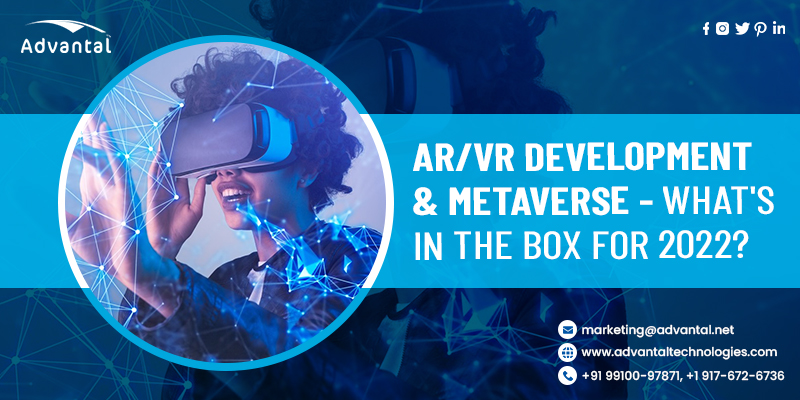The past two decades were all about the growth of the Internet and its influence on society. The recent announcement of Metaverse by the previously known Facebook Inc. has ushered the world of digital technology in the golden age of AR/VR development.
Metaverse is a parallel virtual reality universe that will make AR/VR development more immersive, interactive, and collaborative.
Immersive Extended Reality (ER) technologies (i.e., Augmented Reality, Virtual Reality, and Mixed Reality) will not be the only frontier innovation that will drive this change. Other new-age techs will also contribute to creating a seamless virtual world.
For instance, wearable technology and IoT advancements, combined with the power of 5G, will help with smooth communication between the dwellers of the Metaverse. On the other hand, Blockchain Technology will facilitate the secure transfer of assets and value from one member to another.
While it’s still too early to assume how the new Metaverse will influence real-world activities and the job market, one thing is for sure – it is going to have a significant impact on the world as we know it.
AR/VR Applications in Business World
When the COVID-19 pandemic wreaked havoc, crippling the world economy, the Internet and enterprise applications for video conferencing, team management, and cloud technologies became instrumental in keeping businesses afloat.
Metaverse will introduce VR-based wearables and make remote business communication more “real-like”. Employees will enter these virtual workplaces by physically being present at their homes, with no need of creating vehicular pollution or inhaling the same.
The Economy of Metaverse
The economy of Metaverse would probably revolve around blockchain technology. There will be non-fungible tokens and distributed ledger-based exchanges, which will allow people to buy, sell, and trade in virtual environments. Powered by the Ethereum blockchain, these new markets will gain traction as a critical foundation for the economy of the Metaverse.
VCORE, for instance, is a new token set to launch in 2022. Its makers are expecting it to provide users with access to the future of Metaverse. VCORE is an ERC-20 token that rewards active, global participants, creators, and earners throughout the Metaverse. ERC-20 (Ethereum Request for Comments – 20) is a guideline or standard that smart contracts should implement to create tokens.
Cryptocurrencies, however, have already set the ball rolling. It could become the most functional currency in the Metaverse. Using cryptographic tokens issued by companies supporting these virtual realities, consumers will be able to buy digital avatars, rent virtual locations, and even organize a party for loved ones.
AR/VR development in the Metaverse can also become a platform for artists to perform and dealers to trade in NFTs. They can get payments in cryptocurrencies and tokens.
Final Thoughts
The examples in this article are just the tip of the iceberg. AR/VR development is the future. The distinctions between real and virtual will become blurred in the future with wearable devices, 5G, blockchain technology, and extended reality technologies.

